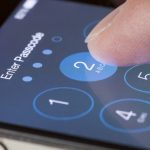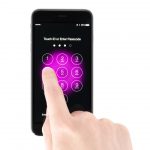Apple, encryption, iPhones, and the FBI plainly explained

Most Americans, and many of the world’s iPhone users, are now aware that a court order was filed on February 16 to compel Apple to assist the FBI in retrieving information from an iPhone. This was the phone uncovered in the aftermath of the mass shooting in San Bernardino in December last year. Apple objected to the FBI’s demands and very public legal maneuvering ensued.
In this article I endeavor to explain some of the key issues that this situation raises, for both privacy and security, as they impact companies, consumers, and governments.
Tim Cook goes off-script describing FBI iPhone backdoor request as 'cancer'

Say what you like about Apple, one thing is for sure -- it is one of the most scripted and tightly-controlled companies in existence. Everything is stage-managed to within an inch of its existence. Leaks about upcoming releases are rare, and there is a tight rein on the media and who has access to its products for review. So when the FBI asked Apple to unlock the iPhone of the San Bernardino shooter it was hardly surprising that the company was a little shaken and unprepared.
This was a media situation Apple was not in control of. Tim Cook has gone on the offensive in recent days, defending his company's decision not to help the FBI, and in a new interview with ABC News the CEO referred to the request to unlock the phone as requiring "software that we view as sort of the equivalent of cancer" -- something of a shocking thing to say when you consider the cause of death of his predecessor, Steve Jobs.
Bill Gates is wrong

I see something disingenuous about Microsoft cofounder Bill Gates supporting the government's demands that Apple selectively unlock an iPhone used by one of the San Bernardino, Calif. shooters. The former CEO turned philanthropist spoke to the Financial times in an interview posted today. The implications for Microsoft cannot be overstated, and the company's current chief executive should state corporate policy.
Gates' position aligns with the government's: That this case is specific, and isolated, and that the demand would merely provide "access to information". Here's the thing: The interviewer asks Gates if he supports tech companies providing backdoors to their smartphones. The technologist deflects: "Nobody's talking about a backdoor". Media consultants teach publicly-facing officials to offer non-answers exactly like this one. The answer defines the narrative, not the interviewer's question.
Microsoft's Bill Gates sides with FBI in Apple iPhone unlocking row, likens it to 'cutting a ribbon around a hard disk'

The debate about whether Apple should help the FBI to access content stored on an iPhone used by one of the San Bernardino shooters rumbles on. Based on our poll, the majority of BetaNews readers are against Apple cracking the phone (67 percent say no, 30 percent say yes, and 3 percent are currently undecided), and most tech firms have expressed similar sentiment.
But in an interview today with the Financial Times (story behind a paywall) Microsoft co-founder Bill Gates has come out firmly on the side of the FBI.
Why Apple's shameless fight with the FBI is all about ego, not just cause

After spending the last few days soaking up as much as possible on the Apple-FBI San Bernardino iPhone spat, the evidence -- in my eyes -- has become crystal clear. Apple's planted itself on the wrong side of history here for numerous reasons, and is using nothing less than a finely scripted legalese tango in defending its ulterior motives.
As a part time, somewhat auxiliary member of the tech media at large, I'm a bit embarrassed at how poorly this story has been covered by my very own colleagues. Many of those who should undeniably have a more nuanced, intricate understanding of the technical tenets being argued here have spent the last week pollinating the internet with talking point, knee-jerk reaction.
Syed Farook's iCloud password was changed by officials; Trump proposes Apple boycott

Apple is standing fast on its decision not to help -- publicly, at least -- the FBI to gain access to the iPhone owned by Syed Farook, one of the San Bernardino terrorists. In the latest twist in the saga, Apple has revealed that the password for the Apple ID associated with the phone was changed whilst Farook was in custody.
Apple says that this closes off another route to accessing the data the FBI seeks. Had the password not been changed, the company says, it may have been possible to retrieve backup data without the need to create a backdoor into the suspect's phone. Meanwhile, wading in to the Apple/FBI debate with all of the elegance of an epileptic elephant, serial buffoon Donald Trump has called for a boycott of Apple products -- despite tweeting from an iPhone himself.
Apple vs. the FBI isn't at all the way you think it is

The FBI holds an iPhone that was owned by one of the San Bernardino terrorists, Syed Rizwan Farook, and wants Apple to crack it. Apple CEO Tim Cook is defying the FBI request and the court order that accompanied it, saying that cracking the phone would require developing a special version of iOS that could bypass passcode encryption. If such a genetically modified mobile OS escaped into the wild it could be used by anyone to crack any current iPhone, which would be bad for Apple’s users and bad for Amurica, Cook says. So he won’t do it, dag nabbit.
That’s the big picture story dominating the tech news this week. However compelling, I’m pretty sure it’s wrong. Apple isn’t defying the FBI. Or at least Apple isn’t defying the Department of Justice, of which the FBI is supposed to be a part. I believe Apple is actually working with the DoJ, which doesn’t really want to compel Apple to do anything except play a dramatic and very political role.
Apple is using a straw man argument to fight the FBI

Listen to Tim Cook and you’d be forgiven for thinking that Apple was standing up for the little guy, sticking up for the likes of you and I in fighting the FBI. The FBI, Apple would have you believe, wants Apple to break encryption, thereby weakening security for everyone. But that's not really the case at all.
The FBI has not asked for encryption to be broken; it wants access to data on the San Bernardino shooter's iPhone, and it wants to do so by using the (as yet unknown) PIN that has been used to lock it. Get it wrong too many times and the device is wiped. The FBI wants custom firmware to be made available that would allow it to brute force the PIN. It's nothing to do with cracking encryption, but that's not what Apple wants you to believe. It's an exercise in misdirection and a classic straw man argument. The problem is, if the straw man goes up in flames, will Apple too?
Poll: Should Apple help the FBI unlock the San Bernardino iPhone?

The US courts say Apple should help the FBI access the contents of an iPhone belonging to one of the San Bernardino shooters, but Apple is refusing, on the grounds that it doesn’t want to erode the security of Apple customers.
I’m personally on Apple’s side, as is my colleague Joe Wilcox, but Donald Trump wants Apple to use "common sense" and open its phone up, while John McAfee is claiming he can help the FBI unlock Apple’s device within "three weeks", primarily through the use of social engineering. The FBI for its part says it doesn’t want Apple to create a backdoor in all iPhones, just unlock the one belonging to the killer.
Tim Cook is absolutely right

Some documents are historically significant. They mark moments, comment on them, in manner demanding future citation and even use in courts or classrooms. That's how I read Apple CEO Tim Cook's "Open Letter to Our Customers", about breaking iPhone encryption. His exposition spotlights seminal moment in the United States of America: Government's further expansion of powers encroaching indiviuals' rights to privacy and one company standing up and saying "No".
Some people will scoff at my comparison, but it truly is what I see. Cook is like Rosa Parks, refusing to take a seat at the back of the bus—or in this instance behind one court judge and the FBI. Cook and Apple stand up for us all. I applaud law enforcement's efforts to protect us from terrorism but tyranny shouldn't be the means; taking away Constitutionally-given freedoms to protect them. Tim Cook is right.
Why Apple is right to reject the order to unlock a killer's phone

Apple has been ordered by the US courts to help the FBI gain access to data on an iPhone belonging to San Bernardino gunman Syed Rizwan Farook. Farook and his wife killed 14 people in the California city late last year before being shot dead by police.
The FBI says the phone contains information crucial to the investigation, and needs Apple’s help to unlock it. Data on Apple devices is encrypted by default -- and has been since September 2014 -- which means no one, other than the device owner, can access it. And that includes Apple itself.
Apple can't give real time iMessage data to the FBI because texts are encrypted

Despite a court order instructing the company to hand over text conversations between iMessage accounts to the FBI, Apple says that its own encryption system means it cannot do so. The Justice Department obtained a court order that required Apple to provide real time access to text messages sent between suspects in an investigation involving guns and drugs.
Apple has responded by saying that the fact iMessage is encrypted means that it is simply not able to comply with the order. The stand-off between the US government and Apple could last for some time as neither side is willing -- or possibly able -- to back down.
What a shocker! FBI head complains about Apple and Google's encryption practices

Apple and Google do not want the US Government to be able to access your private data, even when search warrants are involved. It's a bold stand they're taking, which has been applauded by privacy advocates and, quite probably, criminals as well. But, guess what? That does not sit well with the authorities. FBI Director James Comey is troubled by the idea that the all-mighty agency that he runs can be stopped dead in its tracks when trying to see your intimate photos, videos and whatnot. Imagine that.
Here's what the fuss is all about. If encryption is turned on, the encryption key, that is needed in order to access the data that is stored on an Android or iOS 8 device, is in the user's control, instead of Google's or Apple's. As such, this allows the companies to be unable to comply with search warrants. It's clever: you can't give what you don't have.
Recent Headlines
Most Commented Stories
BetaNews, your source for breaking tech news, reviews, and in-depth reporting since 1998.
Regional iGaming Content
© 1998-2025 BetaNews, Inc. All Rights Reserved. About Us - Privacy Policy - Cookie Policy - Sitemap.